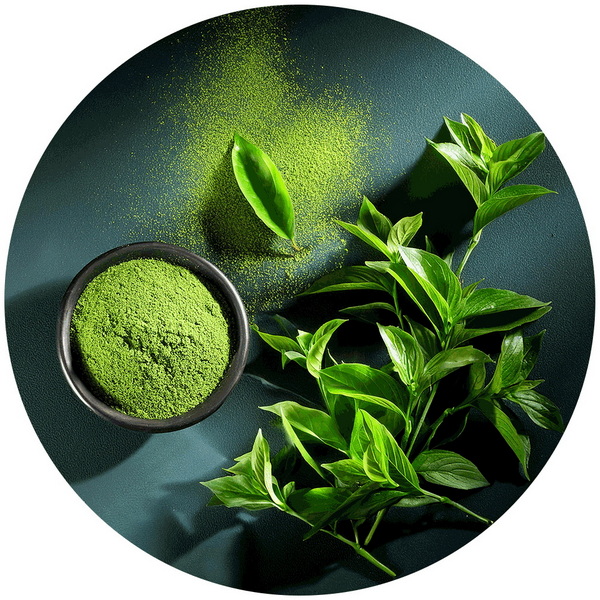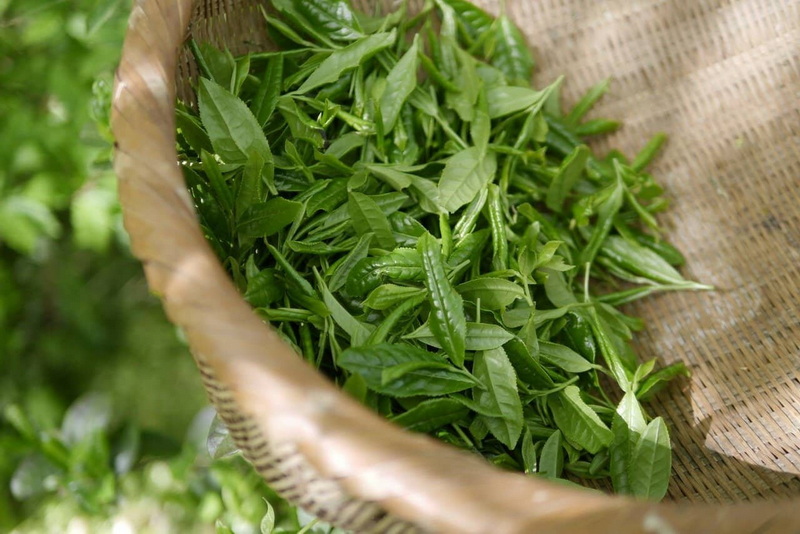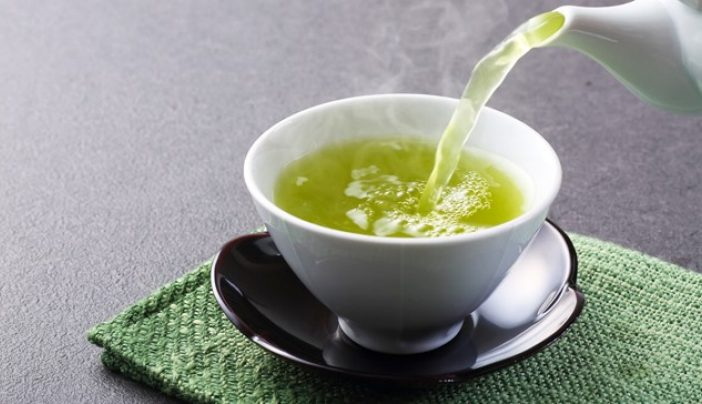Content Menu
● The Basics of Green Tea
>> Composition of Green Tea
● Understanding Green Tea Leaf Extract
>> Composition of Green Tea Leaf Extract
● Comparing Green Tea and Green Tea Leaf Extract
>> Concentration of Active Compounds
>> Convenience and Dosage
>> Taste and Experience
● Potential Benefits of Green Tea and Green Tea Extract
● Safety Considerations
>> Green Tea
>> Green Tea Extract
● Choosing Between Green Tea and Green Tea Extract
● How to Incorporate Green Tea or Green Tea Extract into Your Routine
>> Green Tea
>> Green Tea Extract
● Conclusion
● FAQ
>> 1. How much caffeine is in green tea compared to green tea extract?
>> 2. Can green tea extract be used to make tea?
>> 3. Are there any groups of people who should avoid green tea extract?
>> 4. How long does it take to see benefits from drinking green tea or taking green tea extract?
>> 5. Can green tea extract be used topically for skin benefits?
● Citations:
Green tea has been a popular beverage for centuries, renowned for its refreshing taste and potential health benefits. In recent years, green tea leaf extract has gained attention as a concentrated form of green tea's beneficial compounds. However, many people wonder if green tea leaf extract is the same as green tea. This article will explore the similarities and differences between these two forms of green tea, their composition, benefits, and uses.

The Basics of Green Tea
Green tea is made from the leaves of the Camellia sinensis plant, which is native to East Asia[1]. Unlike black tea, green tea leaves are minimally processed, preserving more of their natural compounds. The leaves are typically steamed or pan-fired to prevent oxidation, resulting in the characteristic green color and delicate flavor.
Composition of Green Tea
Green tea contains a variety of beneficial compounds, including:
1. Catechins: These are the primary polyphenols in green tea, with epigallocatechin-3-gallate (EGCG) being the most abundant and bioactive[3].
2. Caffeine: Green tea contains moderate amounts of caffeine, which can provide a mild stimulant effect.
3. L-theanine: An amino acid that can promote relaxation and improve cognitive function.
4. Vitamins and minerals: Including vitamin C, B vitamins, and trace minerals.
Understanding Green Tea Leaf Extract
Green tea leaf extract is a concentrated form of the beneficial compounds found in green tea leaves. It is typically made by steeping green tea leaves in hot water or alcohol, then concentrating and drying the resulting liquid[5].
Composition of Green Tea Leaf Extract
The composition of green tea leaf extract is similar to that of brewed green tea, but with higher concentrations of certain compounds:
1. Catechins: Green tea extract contains a higher concentration of catechins, particularly EGCG, compared to brewed green tea[1].
2. Caffeine: The caffeine content in green tea extract can vary, with some extracts being decaffeinated.
3. Other polyphenols: Green tea extract may contain higher levels of other beneficial compounds found in green tea.
Comparing Green Tea and Green Tea Leaf Extract
While green tea and green tea leaf extract share many similarities, there are some key differences to consider:
Concentration of Active Compounds
The most significant difference between green tea and its extract is the concentration of active compounds. Green tea leaf extract typically contains higher levels of catechins and other polyphenols compared to brewed green tea[3]. For example, a cup of green tea may contain 100-200 mg of EGCG, while a single capsule of green tea extract can contain 300-400 mg or more.
Convenience and Dosage
Green tea extract offers a more convenient way to consume a higher dose of green tea's beneficial compounds. This can be particularly useful for those looking to maximize the potential health benefits or who don't enjoy drinking multiple cups of tea per day.
Taste and Experience
One of the main advantages of drinking green tea is the enjoyable taste and ritual of preparing and sipping the beverage. Green tea extract, typically consumed in capsule or powder form, lacks this sensory experience.
Potential Benefits of Green Tea and Green Tea Extract
Both green tea and green tea extract offer numerous potential health benefits, largely attributed to their high content of catechins and other polyphenols:
1. Antioxidant properties: The catechins in green tea and its extract act as powerful antioxidants, helping to protect cells from damage caused by free radicals[3].
2. Weight management: Some studies suggest that green tea and its extract may boost metabolism and increase fat burning, potentially aiding in weight loss efforts[4].
3. Heart health: Regular consumption of green tea or its extract may help lower the risk of cardiovascular disease by improving cholesterol levels and reducing blood pressure[5].
4. Brain function: The combination of caffeine and L-theanine in green tea may improve cognitive function and reduce the risk of neurodegenerative diseases[2].
5. Cancer prevention: Some research indicates that the antioxidants in green tea may help protect against certain types of cancer, although more studies are needed to confirm these effects[4].

Safety Considerations
While both green tea and green tea extract are generally considered safe for most people when consumed in moderation, there are some potential risks to consider:
Green Tea
- Caffeine sensitivity: Some people may experience side effects from the caffeine in green tea, such as insomnia, nervousness, or increased heart rate.
- Iron absorption: Green tea may interfere with iron absorption, so it's best to drink it between meals rather than with iron-rich foods.
Green Tea Extract
- Liver concerns: High doses of green tea extract have been associated with rare cases of liver damage, particularly in individuals with pre-existing liver conditions[5].
- Caffeine content: Some green tea extracts contain high levels of caffeine, which may cause side effects in sensitive individuals.
- Interactions with medications: Green tea extract may interact with certain medications, including blood thinners and some antibiotics.
Choosing Between Green Tea and Green Tea Extract
When deciding whether to consume green tea or green tea extract, consider the following factors:
1. Health goals: If you're looking to maximize the potential health benefits, green tea extract may provide a more concentrated dose of beneficial compounds.
2. Lifestyle: If you enjoy the ritual of drinking tea and have time to prepare it, traditional green tea may be more appealing.
3. Caffeine sensitivity: If you're sensitive to caffeine, look for decaffeinated green tea or green tea extract options.
4. Existing health conditions: Consult with a healthcare professional before taking green tea extract, especially if you have liver problems or are taking medications.
How to Incorporate Green Tea or Green Tea Extract into Your Routine
Green Tea
- Brew 1-3 cups of green tea daily, using water that's around 160-180°F (70-80°C) to avoid bitterness.
- Experiment with different varieties of green tea to find your favorite flavor profile.
- Try adding green tea to smoothies or using it as a base for iced tea.
Green Tea Extract
- Follow the dosage instructions on the product label or as recommended by a healthcare professional.
- Consider taking green tea extract with food to minimize the risk of stomach upset.
- Look for standardized extracts that specify the EGCG content for consistency.
Conclusion
While green tea leaf extract and green tea share many similarities in terms of their beneficial compounds and potential health effects, they are not exactly the same. Green tea extract offers a more concentrated form of the active compounds found in green tea, potentially providing greater health benefits in a more convenient form. However, traditional green tea offers the pleasure of a soothing, flavorful beverage and a lower risk of adverse effects associated with high doses of concentrated extracts.
Ultimately, the choice between green tea and green tea extract depends on individual preferences, health goals, and lifestyle factors. Both forms can be part of a healthy diet and may contribute to overall well-being when consumed responsibly. As with any dietary supplement, it's always best to consult with a healthcare professional before adding green tea extract to your routine, especially if you have pre-existing health conditions or are taking medications.

FAQ
1. How much caffeine is in green tea compared to green tea extract?
The caffeine content in green tea can vary, but typically ranges from 12-75 mg per cup, depending on the brewing method and tea variety. Green tea extract may contain varying amounts of caffeine, from none (in decaffeinated extracts) to amounts comparable to or higher than brewed green tea. It's important to check the product label for specific caffeine content in green tea extracts.
2. Can green tea extract be used to make tea?
While it's possible to dissolve green tea extract powder in water to make a tea-like beverage, it's not the same as traditional brewed green tea. The flavor may be more intense and less nuanced than whole leaf green tea. Additionally, some of the compounds present in whole leaf tea may be lost or altered in the extraction process.
3. Are there any groups of people who should avoid green tea extract?
Certain groups should exercise caution or avoid green tea extract, including:
- People with liver problems
- Those taking blood thinners or certain antibiotics
- Individuals with iron deficiency anemia
- Pregnant or breastfeeding women (due to caffeine content)
- People with anxiety disorders or sleep problems (if the extract contains caffeine)
Always consult with a healthcare professional before starting any new supplement regimen.
4. How long does it take to see benefits from drinking green tea or taking green tea extract?
The time frame for experiencing benefits from green tea or its extract can vary depending on the individual and the specific health outcome being measured. Some effects, like improved mental alertness, may be noticeable shortly after consumption. Other potential benefits, such as improvements in cardiovascular health or weight management, may take weeks or months of regular consumption to become apparent. Consistency is key when it comes to reaping the potential long-term health benefits of green tea or green tea extract.
5. Can green tea extract be used topically for skin benefits?
Yes, green tea extract is sometimes used in skincare products for its potential antioxidant and anti-inflammatory properties. Some studies suggest that topical application of green tea extract may help protect the skin from UV damage, reduce signs of aging, and improve skin hydration. However, more research is needed to fully understand the effectiveness of topical green tea extract for various skin concerns. As with any new skincare product, it's best to do a patch test first and consult with a dermatologist if you have any skin conditions or concerns.
Citations:
[1] https://patents.google.com/patent/US20160219897A1/en
[2] https://www.mdpi.com/2297-8739/10/2/121
[3] https://www.nature.com/articles/srep19710
[4] https://www.nccih.nih.gov/health/green-tea
[5] https://www.urmc.rochester.edu/encyclopedia/content?contenttypeid=19&contentid=greenteaextract
[6] https://pmc.ncbi.nlm.nih.gov/articles/PMC7555212/
[7] https://pubchem.ncbi.nlm.nih.gov/compound/Green-tea-leaf
[8] https://en.wikipedia.org/wiki/Green_tea






























